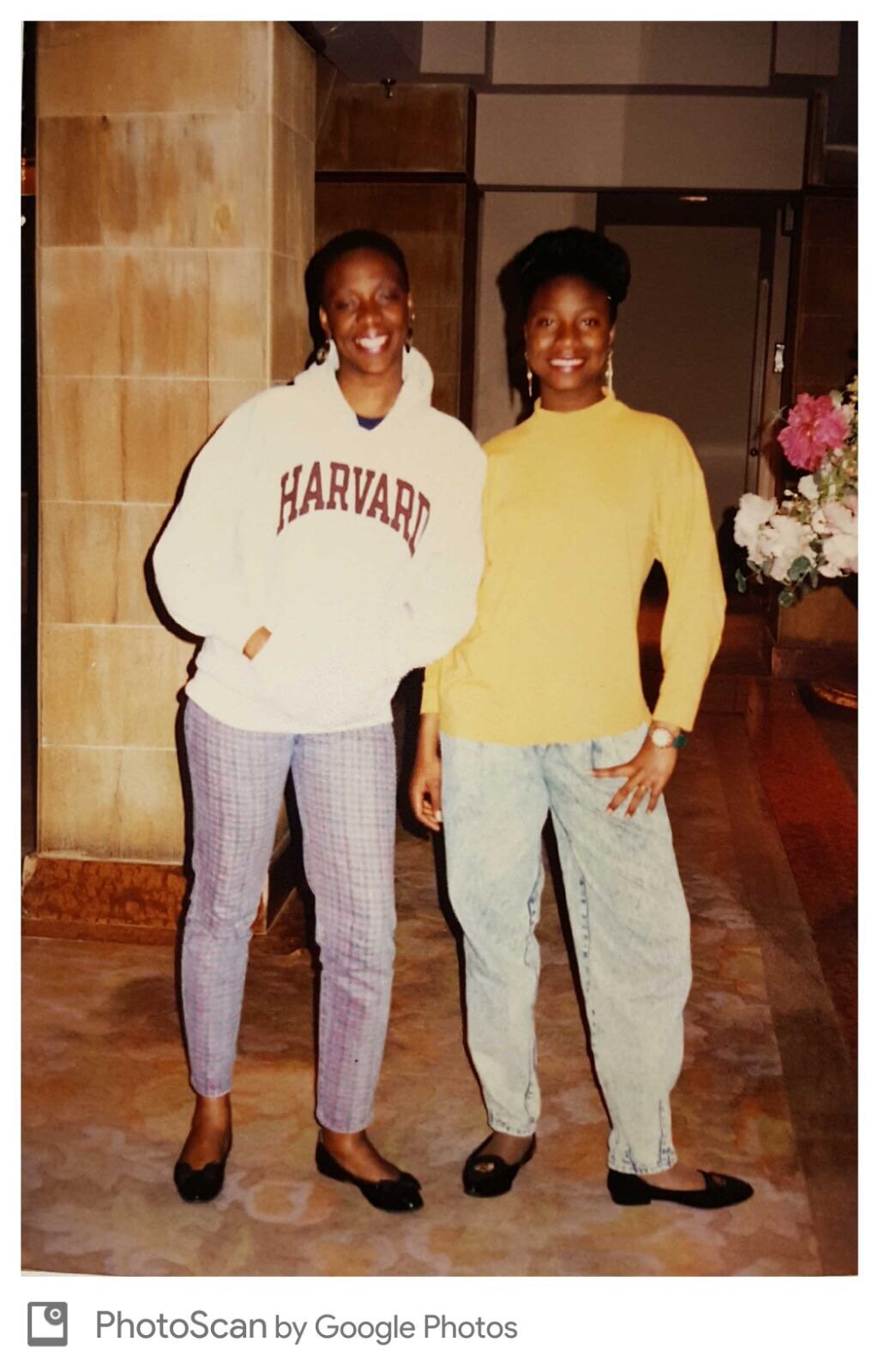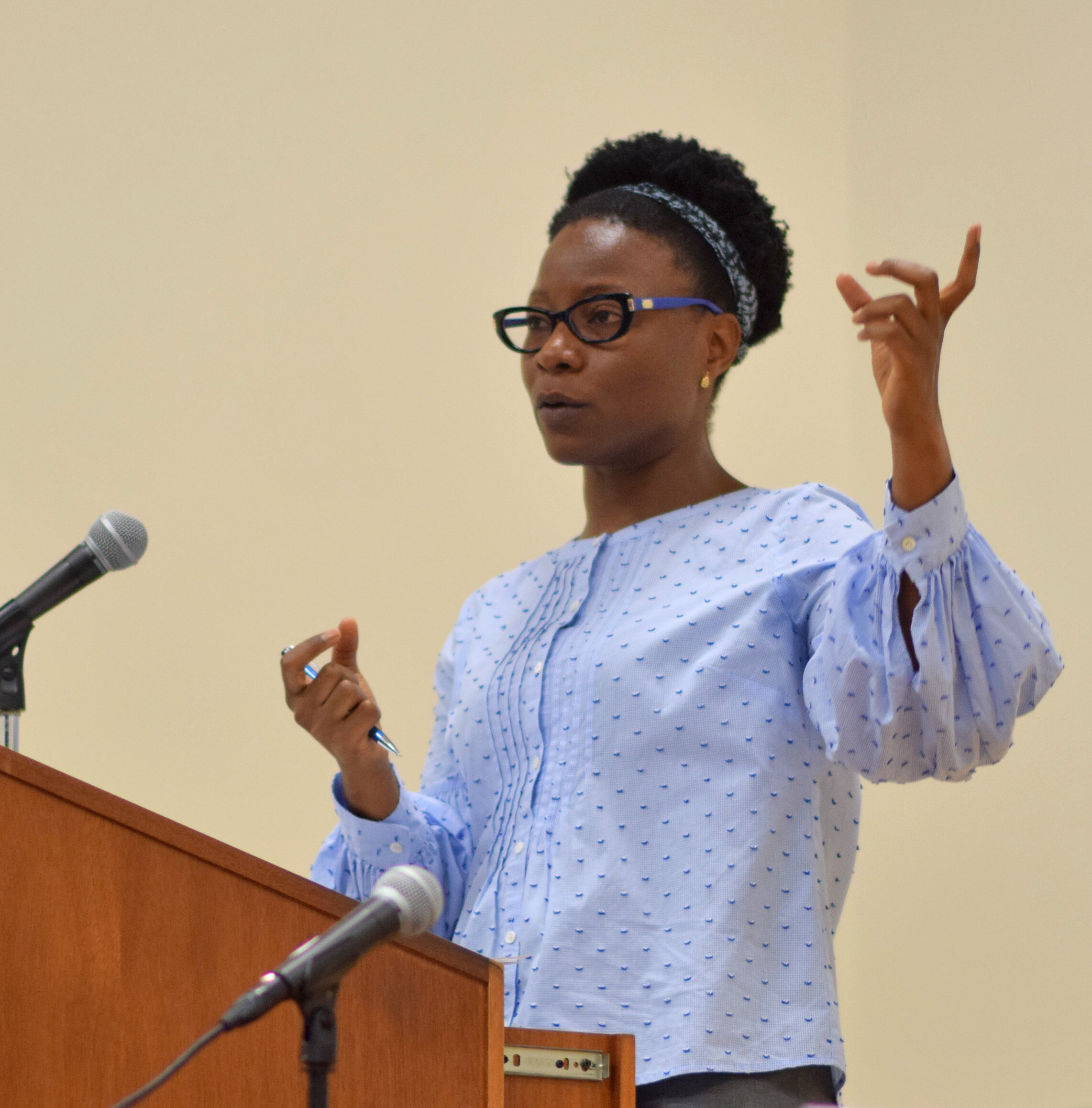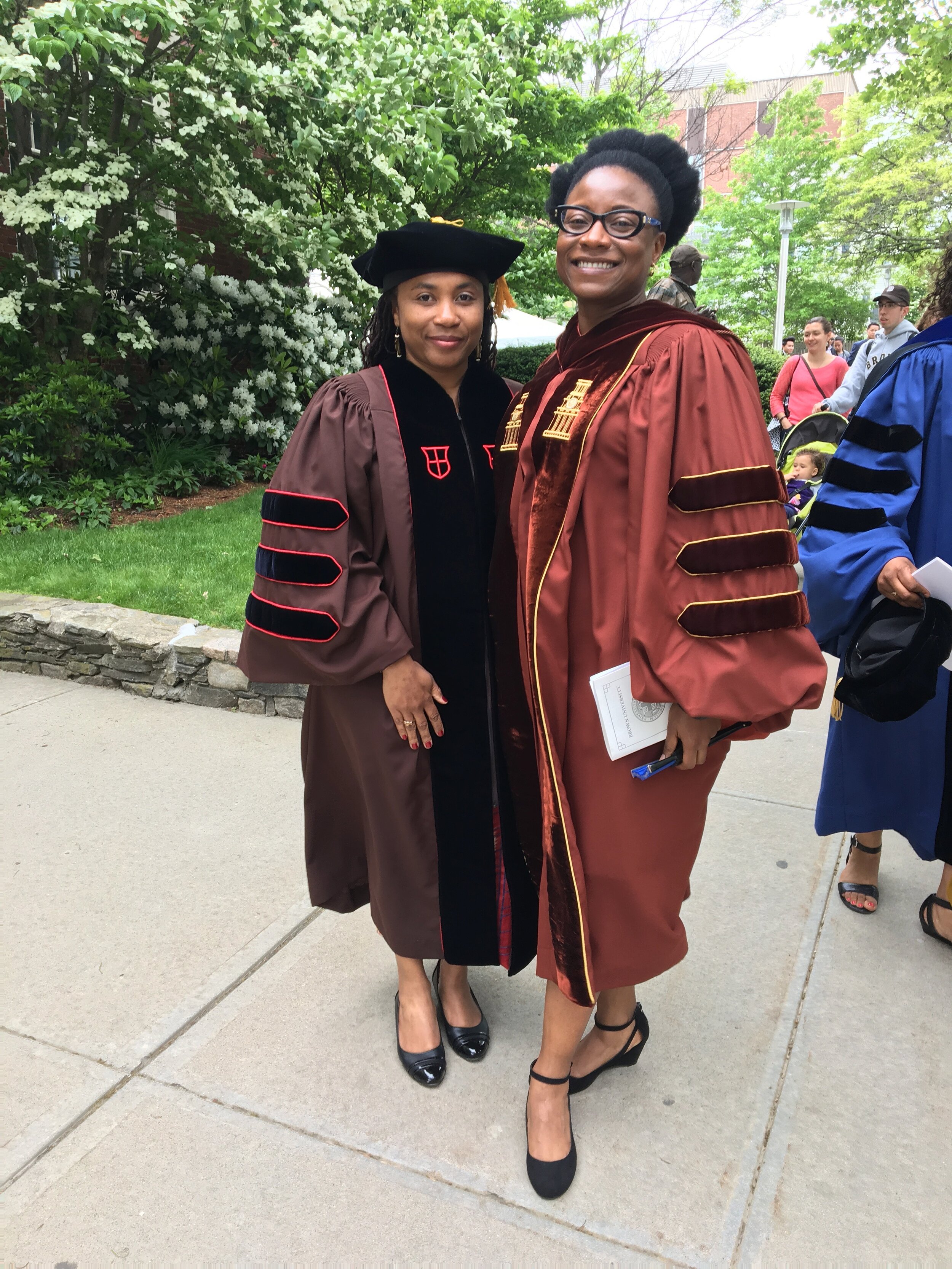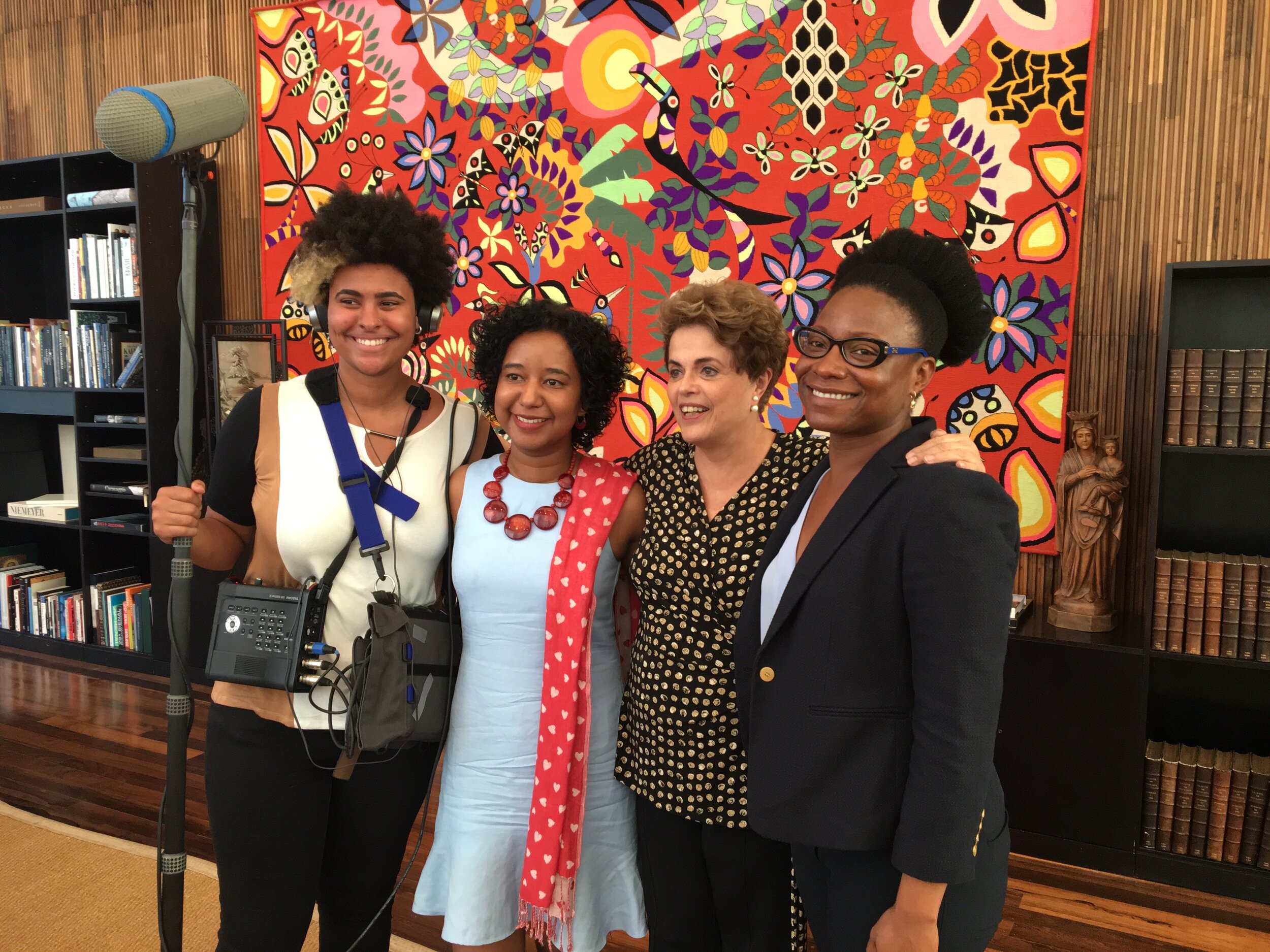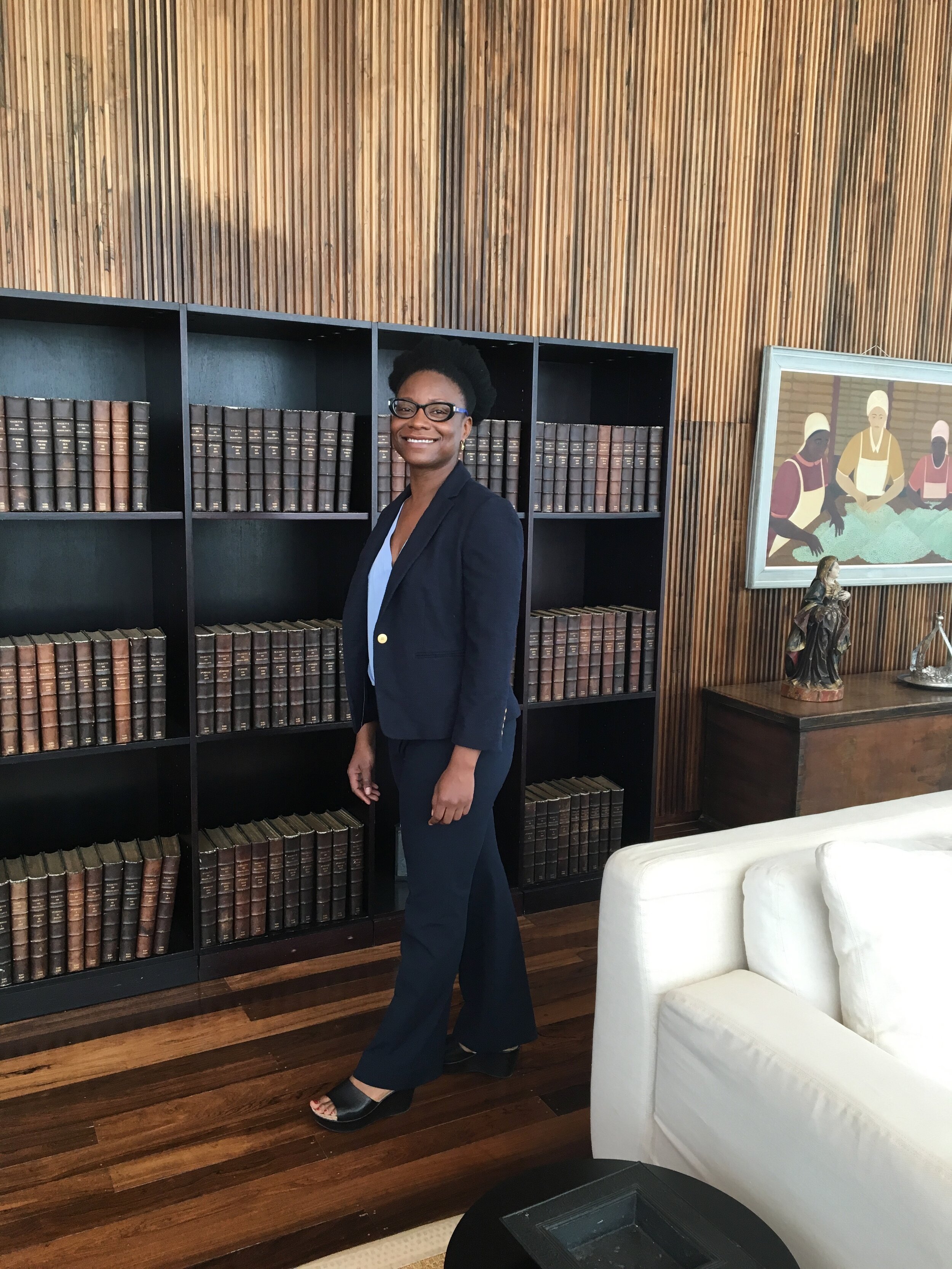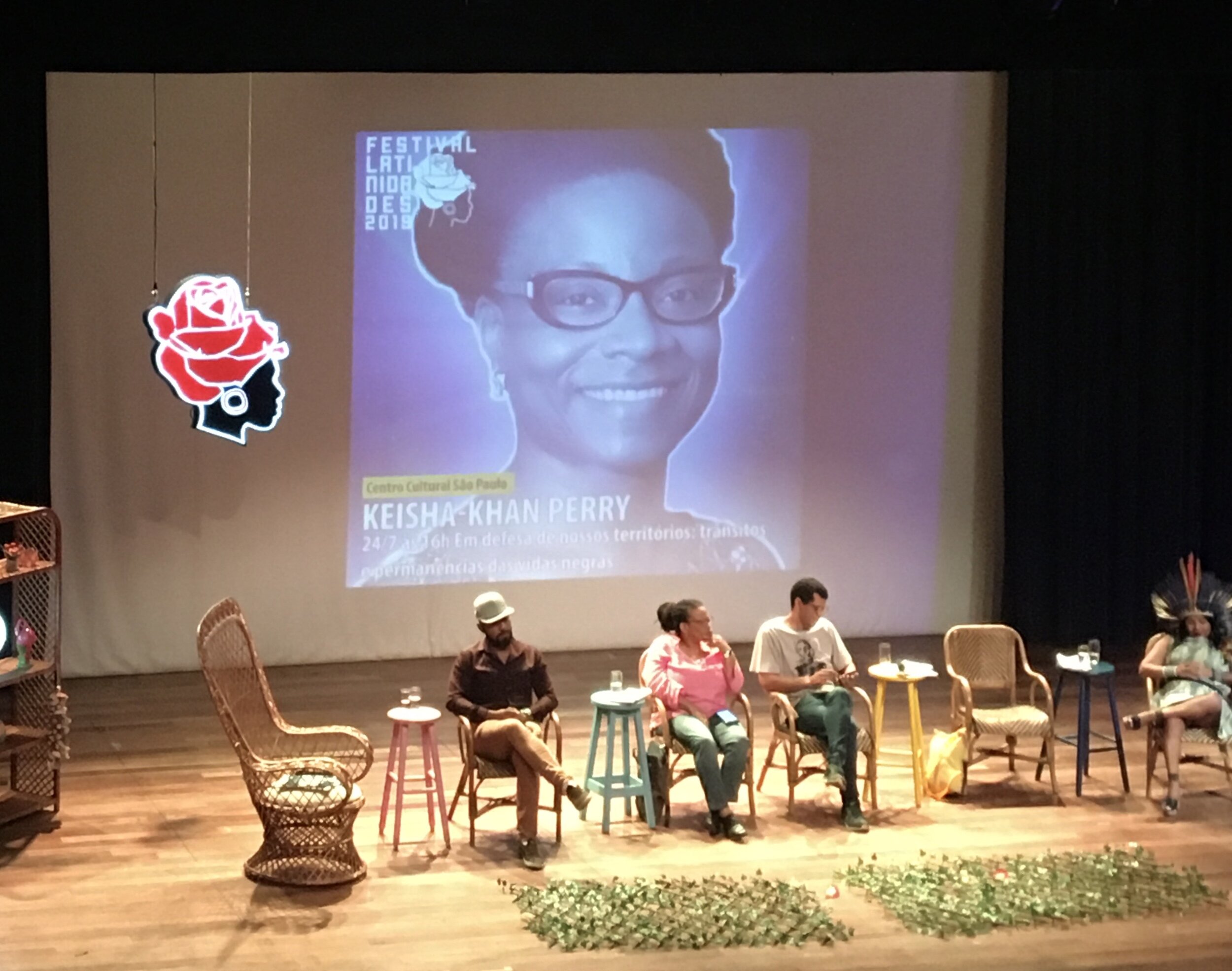I was born in Kingston, Jamaica and migrated to the United States at the age of 10. I can vividly remember the day I arrived in this country, especially landing in Newark at night and feeling as though we were about to land on the New Jersey Turnpike. I quickly adapted to life in the suburbs, became a star field hockey player in middle and high school, and developed a passion for learning languages. I started with French and Spanish and a chance opportunity to study abroad allowed me to go to Burgos and Madrid, Spain one summer in high school. We moved to Newark just before I started college and that experience profoundly shaped my perspective on being black in the diaspora, urban life and politics, and the history of social movements in the United States.
I went to college thinking that I would become a professional interpreter, a diplomatic, or a lawyer, but instead I chose to purse a career in academia. I received a Bachelor of Science in Spanish and a Bachelor of Arts in Women’s Studies from Georgetown University and a Masters and Ph.D. in Social Anthropology from The University of Texas at Austin. Since the start of my career, I have been a professor of Africana Studies at Brown University where I have taught classes focused on and researched questions of race, gender and politics in the Americas, urban geography and questions of citizenship, intellectual history and disciplinary formation, and the interrelationship between scholarship, pedagogy and political engagement. I speak Spanish and Portuguese fluently, and I am currently studying French to expand the geographic depth of my research in the Americas and the broader Africana world. I have conducted research in Argentina, Belize, Brazil, Ecuador, Jamaica, Mexico, and the United States.
My first book, Black Women against the Land Grab: The Fight for Racial Justice in Brazil (University of Minnesota Press, 2013), is an ethnographic study of black women’s activism in Brazilian cities, specifically an examination of black women’s participation and leadership in neighborhood associations, and the re-interpretations of racial and gender identities in urban spaces. The book is the result of more than a decade of research collaborations with local activists in the Gamboa de Baixo (also called Gamboa) neighborhood of the city of Salvador that is at the heart of the work. Winner of the National Women’s Studies Association 2014 Gloria E. Anzaldúa Book Award, this book includes an analysis of the relationship between between violent state policing and mass evictions as well as between environmental justice movements and land and housing rights struggles in Brazil. I am currently writing the book, Anthropology for Liberation, that draws heavily from my ethnographic research experience in Brazil with an emphasis on the complexity of doing activist research amidst racial and gender violence.
My second major research project, The Historical Paradox of Citizenship: Black Land Ownership and Loss in the Americas, is a continuation of this research in documenting and analyzing the political paradox of black land loss and ownership in relationship to the material articulation of citizenship in Brazil, Jamaica, and the United States. A third project, Evictions and Convictions, centers the research on policing in gentrifying neighborhoods in New York City with an emphasis on black women’s experiences with incarceration and housing evictions. Another ongoing research project is a multi-lingual and transnational exploration of black women’s political work in Latin America. I examine how black women mobilize political movements across borders and how they understand themselves as agents in creating a diasporic community. My research has been supported by numerous awards over the years such as the National Science Foundation and Fulbright fellowships, Richard B. Salomon Faculty Research Award, Pembroke Center Seed Grant for Collaborative Research, Center for the Study of Slavery and Justice Faculty Collaborative Research Award, Cogut Institute for the Humanities Faculty Grant, and Watson Center for Public and International Affairs Collaboration Grant. I am most proud to have received the Brown University Swearer Center Inaugural Faculty Award for Engaged Research in 2019.
My research has informed by pedagogy and I am deeply passionate about teaching. My courses at Brown have focused on diaspora, social movements, research methods, black feminist thought, urban politics, and gendered racial thought in Brazil. These courses include: Race, Rights and Rebellion; Race, Gender, and Urban Politics; Black Transnational Feminism; Theorizing the Black Diaspora; Africana Studies and Interdisciplinarity; and Racial and Gender Politics in Contemporary Brazil. Teaching is my primary vocation, and I am most committed to mentoring students to succeed in their respective fields and in supporting them in planning for advanced education and professional lives beyond college and graduate school. At Brown, I received the CareerLAB Comfort and Urry Prize for Leadership, Career Advising, and Motivation (2017) and the Graduate School Faculty Award for Advising and Mentoring (2018) in recognition of this advising work with both undergraduate and graduate students.
In addition to building my life as a scholar, activist and teacher, my most important project thus far as been as that of mothering a smart, witty and funny black boy who is a fierce hockey and chess player. Perhaps, he has been my best teacher of critical optimism and hope.


